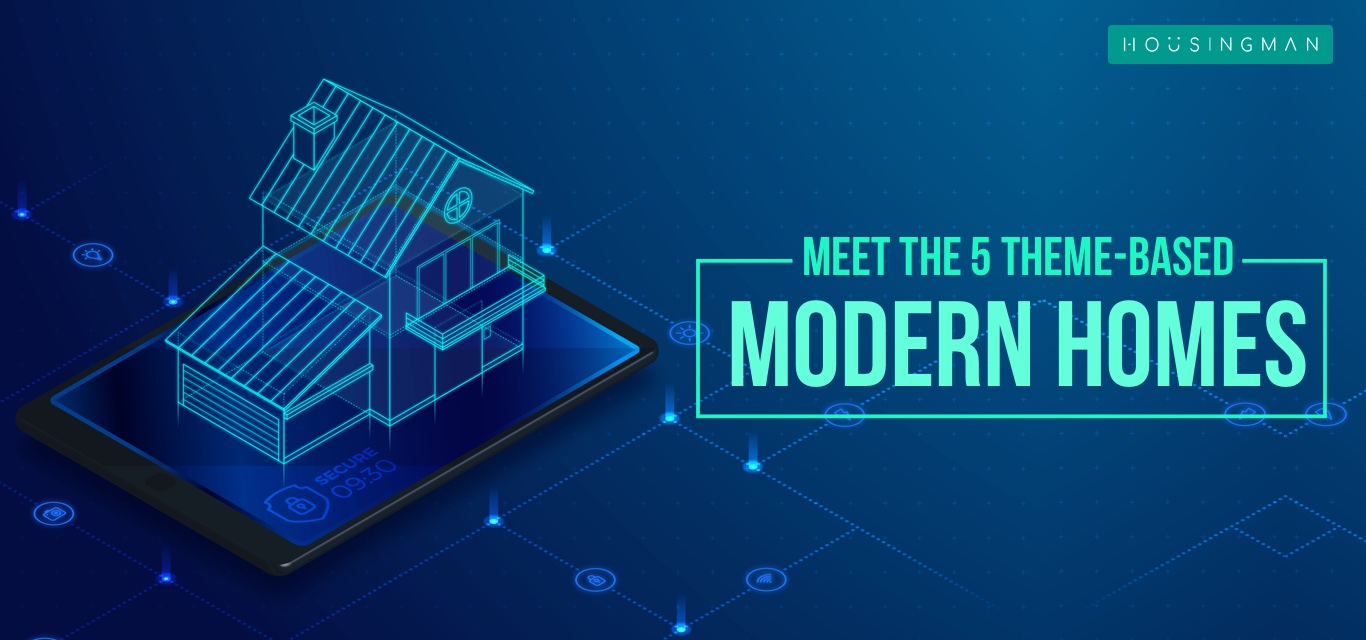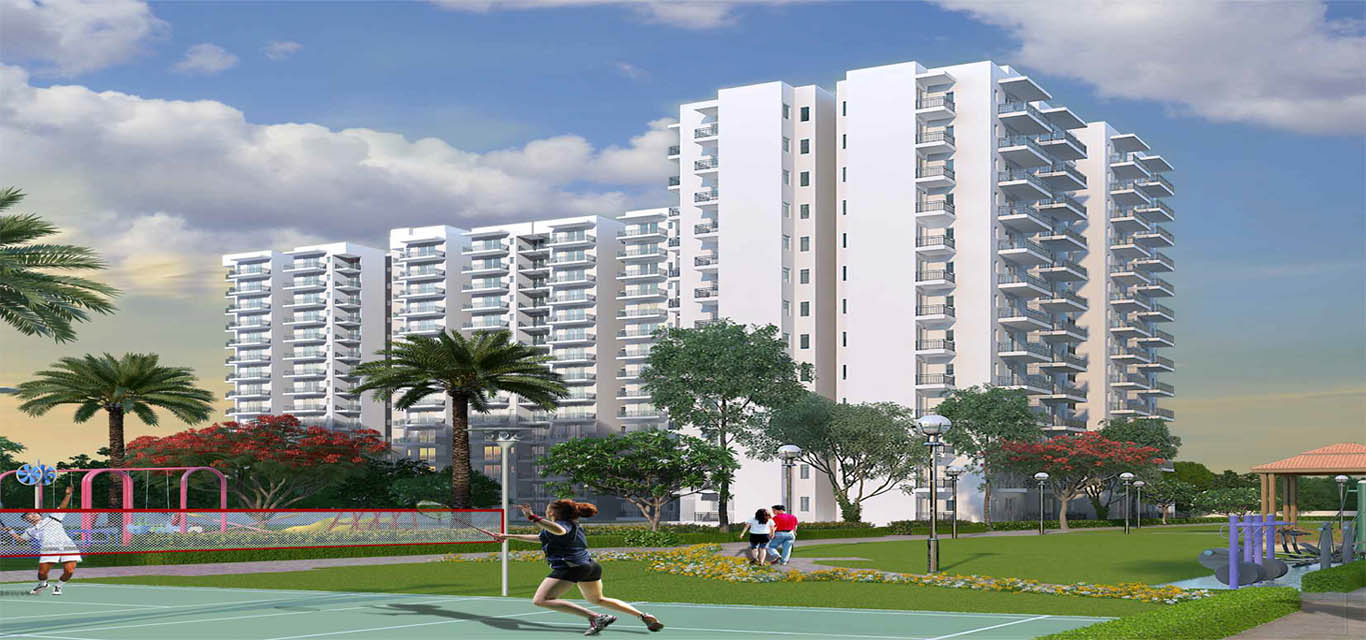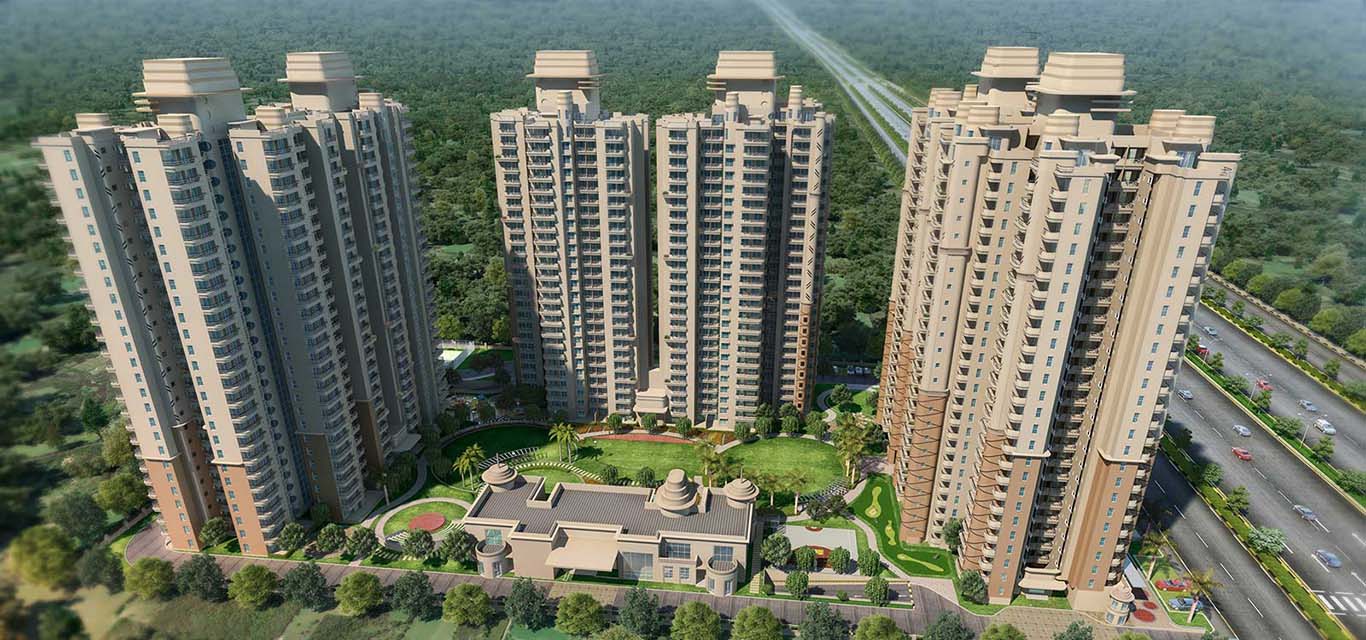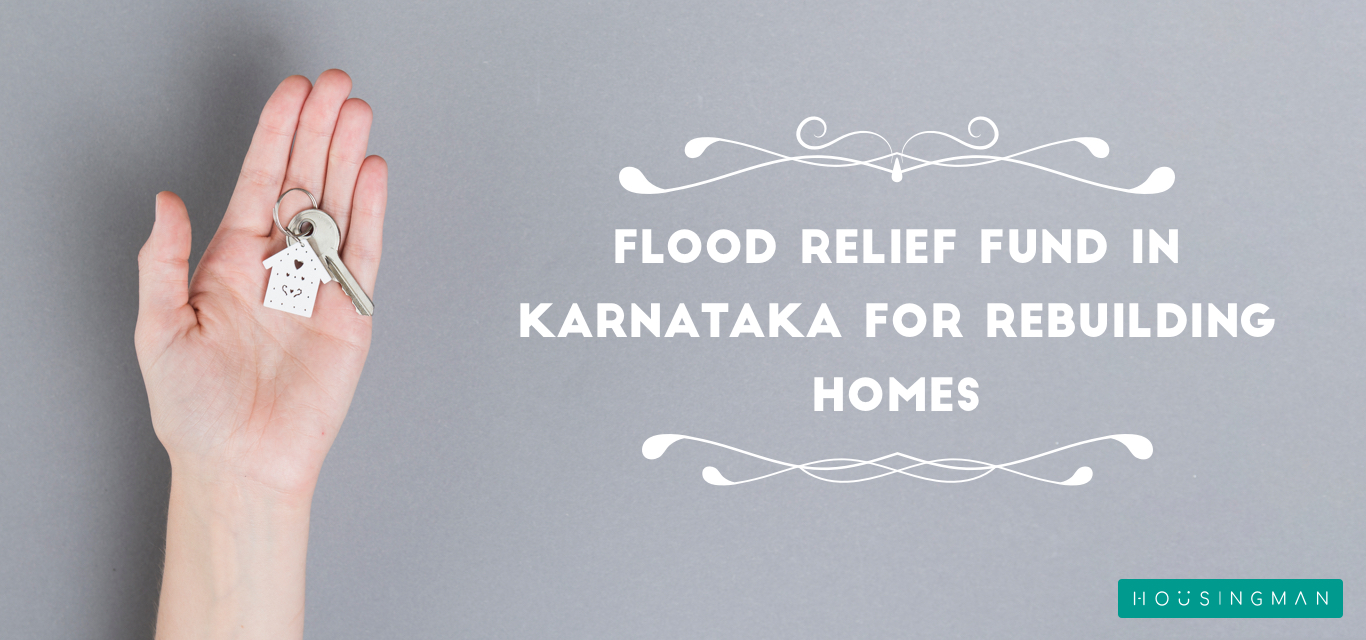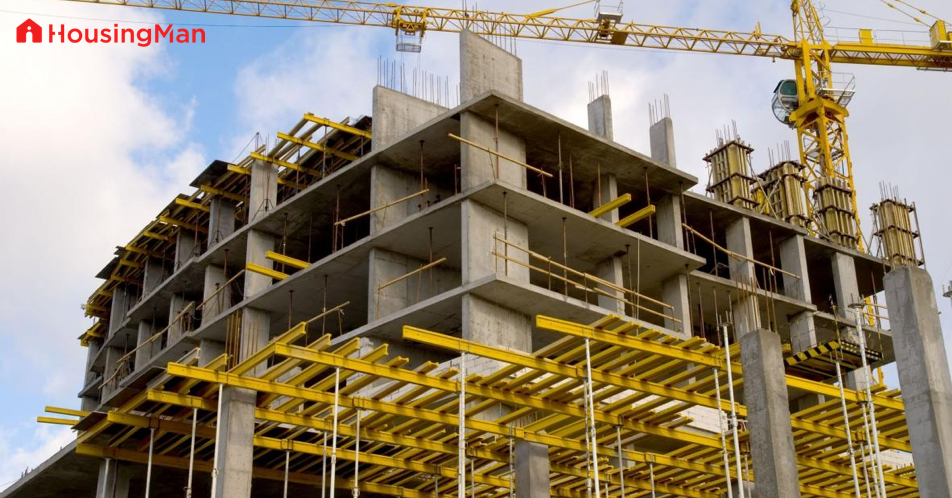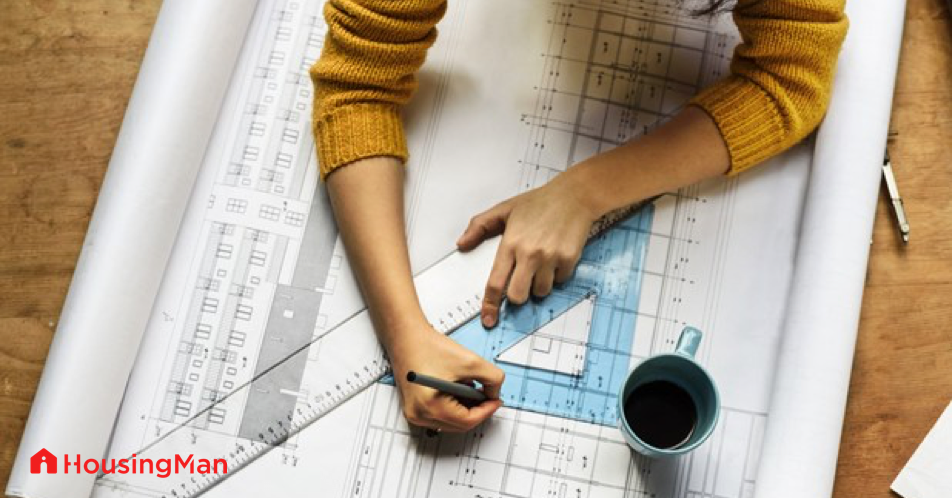‘Apartment maintenance charges’ is one of the vaguest topics in the real estate realm. While most, if not all, the apartment owners have to pay these common maintenance charges, there aren’t many great resources that answer questions like ‘how much is reasonable,’ ‘am I paying more than what is required,’ or ‘is there any flat maintenance charges law to protect me if I feel I’m paying more’.
Fret not, HousingMan answers all your queries on apartment maintenance charges and delves deeper into the details of these burning, yet unanswered questions. Read on!
Are there any flat maintenance charges law in India?
As a home buyer, the first question you might have is, “am I protected in case something goes wrong or if I find something that was not brought to my attention before purchasing the property?”
Well, ‘yes’. The Parliament of India has passed an act called the Real Estate (Regulation and Development) Act in 2016 — the most important flat maintenance charges law in India. This Act has established the long-awaited Real Estate Regulatory Authority (RERA) in order to ensure a transparent selling and buying process for all types of properties. According to RERA, the builder or developer is responsible to provide maintenance for the sold property on a regular basis, the charges of which has to be borne by the resident. However, it ensures that these charges are reasonable.
RERA has made it mandatory to sign a maintenance agreement between the builder and the buyer, in which the actual amount that would be charged for the maintenance, along with its cost breakdown and frequency, should be mentioned. This ensures that the buyer is aware of the charges, which were at times previously hidden from the customer. In case the process is not transparent, RERA is always there to the rescue of the home buyers.
However, the direct involvement with the builder is only until the time a society or Resident Welfare Association (RWA) is formed in the project. From there on, it is the collaborative decision made by the RWA and the builder to fix the apartment maintenance charges. This makes the process both smooth and clear for the buyer as well as the builder.
Is it mandatory to pay the apartment maintenance charges?
Flat maintenance is a contract signed by both the builder and the buyer, which makes it compulsory to pay the flat maintenance. This is beneficial for various purposes, as you don’t have to take care of everything yourself, such as the security arrangements, water supply, electricity supply, sewer lines, telephone lines, garden, parking and various other amenity maintenances — the builder, and in the later stage, your society does that for you!
Now, there can be questions like, ‘do I have to pay these maintenance charges if my flat is vacant/unoccupied?’ The answer is still, ‘yes’. This is because, the charges are not levied for the individual houses, but for the common maintenance that the society or builder has to do on a frequent basis. In case you feel that you are paying unnecessary charges, for example, water charges, even when the flat is unoccupied, your society can formulate two different component in their bye-laws — one for the inevitable maintenance, and the other one that depends on the usage. So, an owner whose flat lies vacant does not need to pay the bills that come under the second component.
How much should be charged & under what heads?
Apart from the cost breakdown mentioned in the contract between the home buyer and the builder, there is no particular law that decides how much you should be charged. It depends on various calculations and often differs from one society to the other. This is usually between Rs. 2/sqft to Rs. 25/sqft.
So, what is the reasonable amount you should pay? Currently, only the state of Maharashtra has a clear legislation regarding the maintenance charges. However, the commonly followed norms are not quite different. According to this, each owner should pay at least 0.75 percent of the total construction cost for each apartment on a yearly basis. However, this is only for the repairs and maintenance of the building. Apart from this, there are other common maintenance charges, which come under the following heads:
- Service Charges for security, housekeeping, common area electricity, and buying/maintaining equipment.
- Lift repair and maintenance, which also includes the expenses for running the lift.
- Sinking Fund: Don’t be afraid. This is not the charge for how much the building sinks into the earth. On the contrary, a sinking fund is simply a way to keep a buffer for any emergency that might come up in the future.
- Non-occupancy charges are for those flats that are rented. The charges are usually around 10% of the service charges.
- Parking charges
- Water charges
- Insurance charges
- Lease rent
- Miscellaneous charges
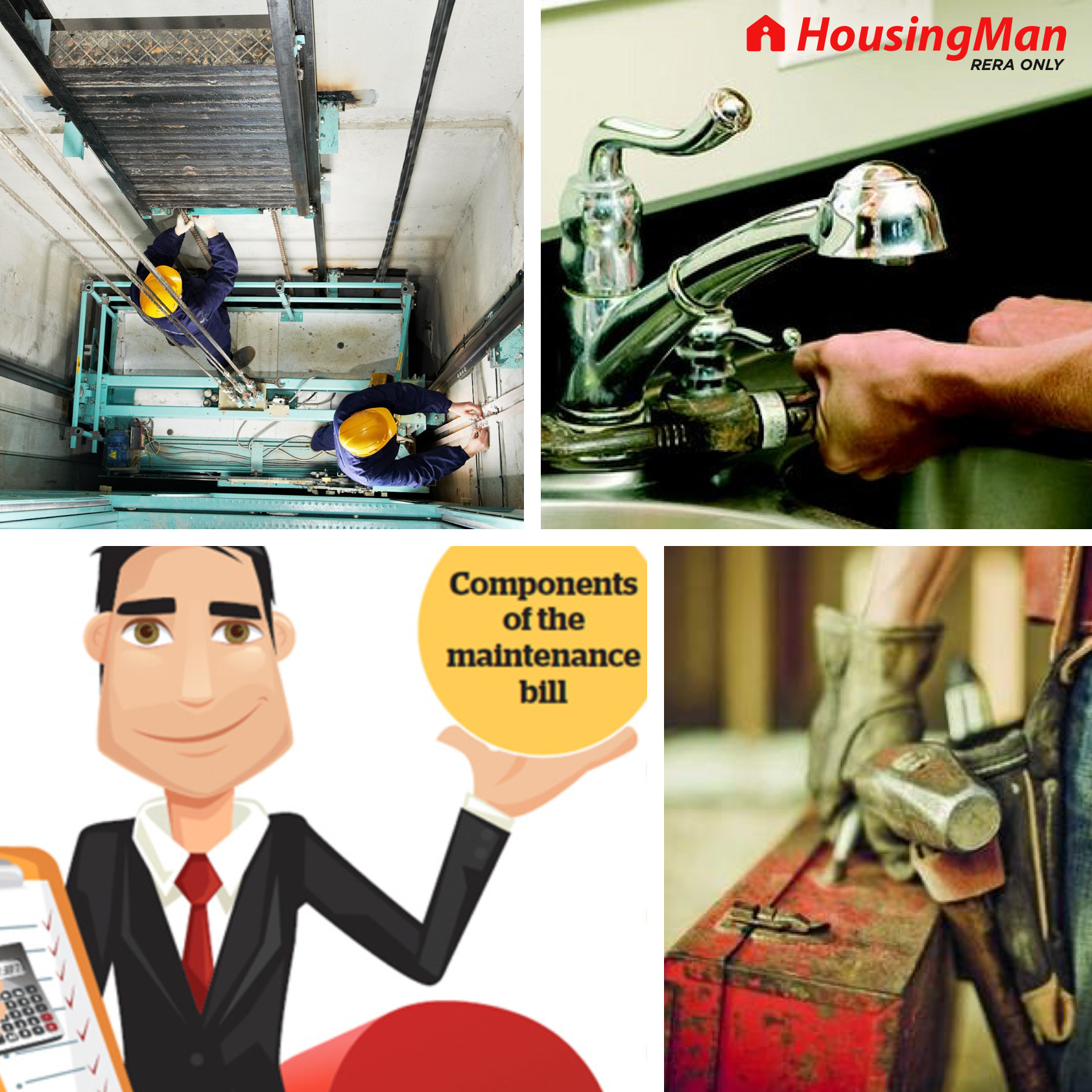
What is the method of apartment maintenance calculation?
It is understandable that you have a question about how these charges are being calculated. Surprisingly enough, the apartment maintenance calculation is one of the most debated questions among societies, builders, and homeowners. Should you charge on the basis of sq. ft. for each flat or should each flat owner pays the exact same fees.
While the common norm was to pay an equal fee, the argument for paying per square feet is quite strong in societies with larger differences in the apartment sizes. So, depending on these situations, there are three common methods of deciding apartment maintenance charges:
a. Per Square Feet Maintenance Charges: In societies that have a greater difference between the apartment sizes, this method is commonly used. It means, the charges would be divided into the square feet charges, and the owners can pay according to what their apartment size is. For example, if a society has fixed Rs. 3 as the per square feet charge, an apartment with 1000 sq.ft has to pay Rs. 3000 as maintenance, while an apartment with 500 sq. ft needs to pay only Rs. 1500. While this method allows easier calculation, it might seem unfair for apartments with larger square feet to pay more money, as all the apartments have equal access to all the common amenities, including swimming pool, parking, and clubhouses.
b. Equal Apartment Maintenance Charges: This method is common when all the apartments are roughly around the same size. Quite simple to understand, in such an instance, the total amount is calculated after the end of the billing cycle and divided equally among all the apartments.
c. Hybrid Maintenance Charges: Sometimes, there are cases where both the aforementioned ways to charge become unfair in some or the other way. In that case, the hybrid calculation method is used. It includes two separate components
(i) one component for which all the apartment owners have to pay regardless of their apartment sizes. This is beneficial for common amenities, such as swimming pool and parking lots.
(ii) the second component includes per square feet charges for certain features such as building repair and maintenance charges and sinking funds.
How often should the apartment maintenance charges be billed?
Just like most aspects of maintenance charges, the billing cycle for apartment maintenance charges is also unique for each society. The common frequencies are monthly charges, quarterly charges, half-yearly charges, and annual maintenance charges. This depends on a variety of factors such as:
- How often your society needs to pay the bills?
- Are the members willing to pay upfront or in larger sums?
- Which frequency gives your society the minimal effort in managing this billing cycle?
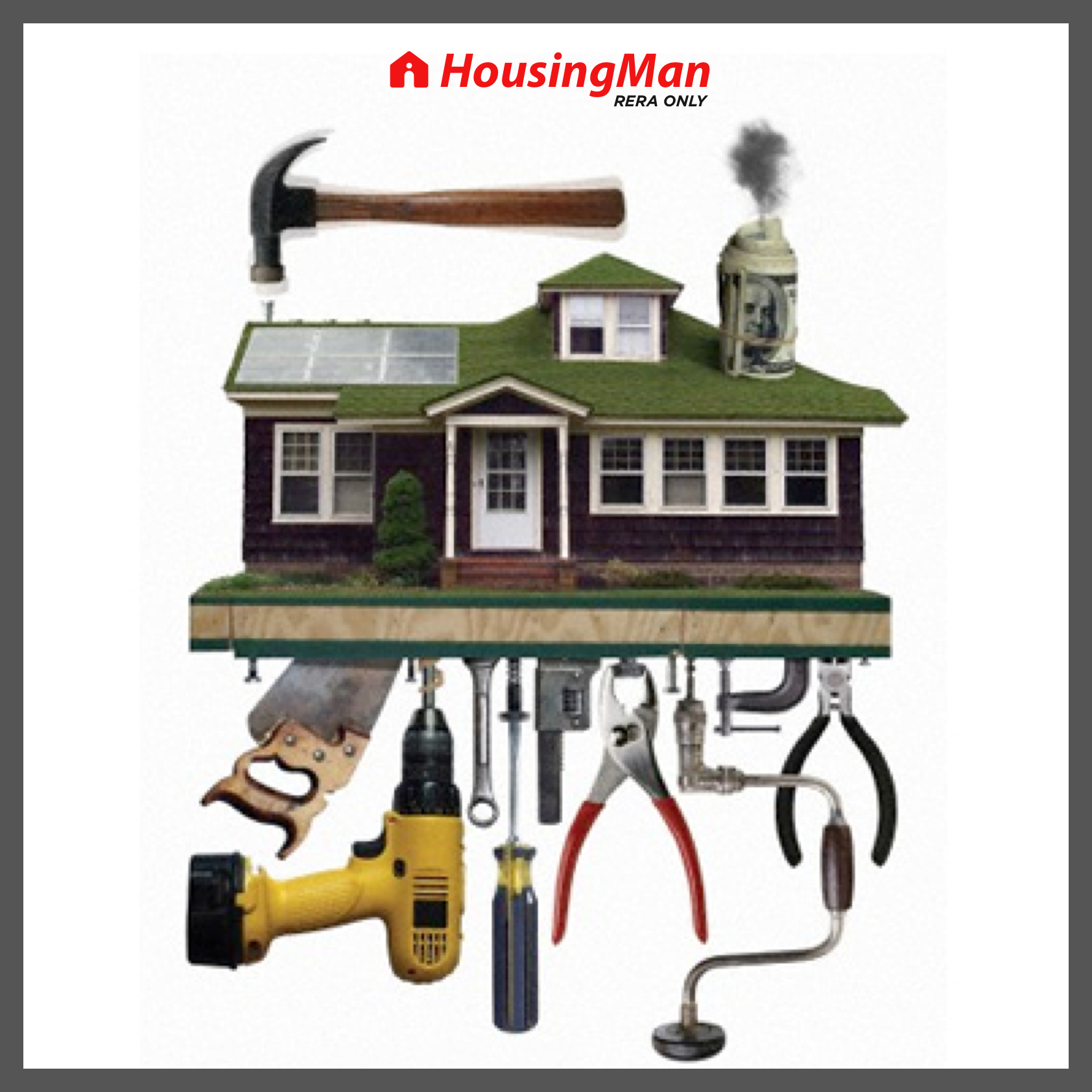
Apparently, while these questions and answers cover most aspects about apartment maintenance charges, we know that there are many questions still popping up in your mind. Since we’re here to answer them all, just comment down your questions below or get in touch with us using our HousingMan contact page. Rest assured, your questions will be answered in the most detailed way possible!



